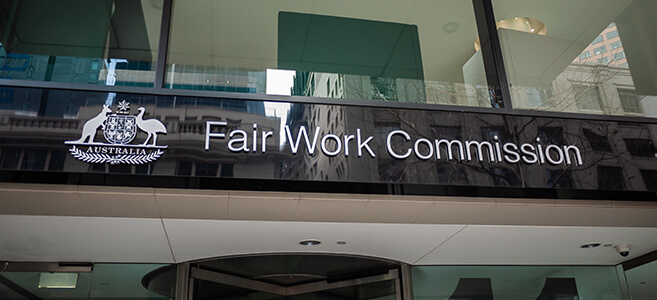Home » Legal Insights » Employers get ready for modern award changes on 1 March 2020
As part of the four yearly review of modern awards, in July 2019 the Fair Work Commission (“FWC”) handed down a decision which will impose new obligations on employers who pay their employees an annual salary under “annualised salary” provisions in modern awards.
In this article, Lawyer Kate Smith provides an overview of the key changes which come onto effect from 1 March 2020.
Background
In response to the increasing prevalence of ‘wage theft’ amongst Australian employers, the purpose of the changes is to introduce a number of notification, recordkeeping and wage reconciliation obligations upon employers who pay their employees annualised salaries under modern awards.
What are the changes?
Depending on what modern award(s) apply to your workforce, the model clauses will impose a number of mandatory requirements which will vary slightly from award to award. For example, an employer may pay a full-time employee an annualised salary in satisfaction of the minimum entitlements with respect to wages, allowances, overtime penalty rates, other penalty rates and annual leave loading. Under the new obligations, however, the employer must now notify the employee, in writing, and keep record of:
- The annualised salary to be paid;
- Which provisions of the modern award will be satisfied by payment of the annualised salary;
- The method by which the annualised salary is calculated; and
- The ‘outer limits’ of the number of overtime hours or penalty rate hours that the employee may work within each pay period or roster cycle.
Further key obligations under the changes also include:
- Where the employee works excess hours outside the ‘outer limits’ of the specified overtime hours, the employer will be required to pay the employer in addition to the annual salary as overtime or with penalty rates;
- The employer must keep a record of each employee’s start and finish times and unpaid breaks and the record must be signed by the employee each pay cycle or roster cycle; and
- Employers must undertake an annual reconciliation every 12 months from the commencement of the employment, or on termination of the employment, involving a comparison of the annual salary paid and the amount that would be payable to the employee if they were paid in accordance with the modern award. If there is a shortfall, the employee must then be paid the amount of the shortfall within 14 days.
What employers need to do?
From 1 March 2020, a failure to comply with these changes will amount to a breach of a modern award and will attract a number of civil penalties pursuant to the Fair Work Act 2009 (Cth).
Accordingly, we recommend that, prior to 1 March 2020, employers who pay annualised salaries to their employees take proactive steps to:
- Understand which modern award, if any, applies to your workplace; and
- Review and make the necessary amendments to employment contracts and HR and payroll practices to comply with the new obligations.
